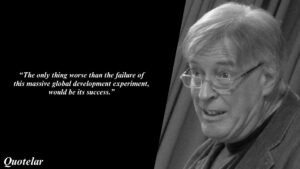
Yasunari Kawabata (川端 康成) was a Japanese novelist and short story writer, known for his poetic and deeply introspective style of writing. He was born on June 11, 1899, in Osaka, Japan, and passed away on April 16, 1972. Kawabata was the first Japanese author to receive the Nobel Prize in Literature, awarded to him in 1968, “for his narrative mastery, which with great sensibility expresses the essence of the Japanese mind.”
Kawabata’s works often explored themes of beauty, transience, and the delicate nuances of human emotions. He was associated with a literary movement known as the “I-novel” (私小説), which focused on personal and subjective narratives.
Some of his notable works include:
“Snow Country” (雪国, Yukiguni) – A novel set in a remote hot spring town and exploring themes of love and isolation.
“Thousand Cranes” (千羽鶴, Senbazuru) – A novel about love, loss, and the complexities of relationships.
“The Old Capital” (古都, Koto) – A novel exploring the juxtaposition of traditional and modern aspects of Japanese society.
“Beauty and Sadness” (美しさと哀しみと, Utsukushisa to Kanashimi to) – A novel delving into love, art, and the passage of time.
Kawabata’s works are celebrated for their lyrical prose, subtle emotions, and profound exploration of the human psyche.
Yasunari Kawabata Quotes
1. “THE TRAIN came out of the long tunnel into the snow country.”
— Yasunari Kawabata
2. “Cosmic time is the same for everyone, but human time differs with each person. Time flows in the same way for all human beings; every human being flows through time in a different way.”
— Yasunari Kawabata
3. “The winter moon becomes a companion, the heart of the priest, sunk in meditation upon religion and philosophy, there in the mountain hall, is engaged in a delicate interplay and exchange with the moon; and it is this of which the poet sings.”
— Yasunari Kawabata
4. “People have separated from each other with walls of concrete that blocked the roads to connection and love. and Nature has been defeated in the name of development.”
— Yasunari Kawabata
5. “Lunatics have no age. If we were crazy, you and I, we might be a great deal younger.”
— Yasunari Kawabata
6. “Our language is primarily for expressing human goodness and beauty.”
— Yasunari Kawabata
7. “The true joy of a moonlit night is something we no longer understand. Only the men of old, when there were no lights, could understand the true joy of a moonlit night.”
— Yasunari Kawabata
8. “Because you cannot see him, God is everywhere.”
— Yasunari Kawabata
9. “A poetess who had died young of cancer had said in one of her poems that for her, on sleepless nights, ’the night offers toads and black dogs and corpses of the drowned.”
— Yasunari Kawabata
10. “The snow on the distant mountains was soft and creamy as if veiled in a faint smoke.”
— Yasunari Kawabata
11. “Now, even more than the evening before, he could think of no one with whom to compare her. She had become absolute, beyond comparison. She had become decision and fate.”
— Yasunari Kawabata
12. “As he caught his footing, his head fell back, and the Milky Way flowed down inside him with a roar.”
— Yasunari Kawabata
13. “It’s remarkable how we go on year after year, doing the same old things. We get tired and bored, and ask when they’ll come for us.”
— Yasunari Kawabata
14. “The labor into which a heart has poured its whole love – where will it have its say, to excite and inspire, and when?”
— Yasunari Kawabata
15. “I suppose even a woman’s hatred is a kind of love.”
— Yasunari Kawabata
16. “Maybe vagueness has been good for me. The word means two different things in Tokyo and Osaka, you know. In Tokyo it means stupidity, but in Osaka they talk about vagueness in a painting and in a game of Go.”
— Yasunari Kawabata
17. “El tiempo corre de la misma manera para todos los seres humanos; pero todo ser humano flota de distinta manera en el tiempo.”
— Yasunari Kawabata
18. “The road was frozen. The village lay quiet under the cold sky. Komako hitched up the skirt of her kimono and tucked it into her obi. The moon shone like a blade frozen in blue ice.”
— Yasunari Kawabata
19. “Seeing the moon, he becomes the moon, the moon seen by him becomes him. He sinks into nature, becomes one with nature. The light of the “clear heart” of the priest, seated in the meditation hall in the darkness before the dawn, becomes for the dawn moon its own light.”
— Yasunari Kawabata
20. “A child walked by, rolling a metal hoop that made a sound of autumn.”
— Yasunari Kawabata
21. “From the way of Go the beauty of Japan and the Orient had fled. Everything had become science and regulation.”
— Yasunari Kawabata
22. “But, drawn to her at that moment, he felt a quiet like the voice of the rain flow over him. He knew well enough that for her it was in fact no waste of effort, but somehow the final determination that it was had the effect of distilling and purifying the woman’s existence.”
— Yasunari Kawabata
23. “But a haiku by Buson came into his mind: ‘I try to forget this senile love; a chilly autumn shower.’ The gloom only grew denser.”
— Yasunari Kawabata
24. “And I can’t complain. After all, only women are able really to love.”
— Yasunari Kawabata
25. “They were words that came out of nothing, but they seemed to him somehow significant. He muttered them over again.”
— Yasunari Kawabata
26. “A secret, if it’s kept, can be sweet and comforting, but once it leaks out it can turn on you with a vengeance.”
— Yasunari Kawabata
27. “Does the pain go away and leave no trace, then?’ ‘You sometimes even feel sentimental for it.”
— Yasunari Kawabata
28. “Put your soul in the palm of my hand for me to look at, like a crystal jewel. I’ll sketch it in words…”
— Yasunari Kawabata
29. “Nothing could be more comfortable than writing about the ballet from books. A ballet he had never seen was an art in another world. It was an unrivaled armchair reverie, a lyric from some paradise. He called his work research, but it was actually a free, uncontrolled fantasy. He preferred not to savor the ballet in the flesh; rather he savored the phantasms of his own dancing imagination, called up by Western books and pictures. It was like being in love with someone he had never seen.”
— Yasunari Kawabata
30. “Along the coast the sea roars, and inland the mountains roar – the roaring at the center, like a distant clap of thunder.”
— Yasunari Kawabata
31. “The high, thin nose was a little lonely, a little sad, but the bud of her lips opened and closed smoothly, like a beautiful little circle of leeches.”
— Yasunari Kawabata
32. “Your mother was such a gentle person. I always feel when I see someone like her that I’m watching the last flowers fall. This is no world for gentle people.”
— Yasunari Kawabata
33. “He could not call up the faces of his own mother and father, who had died three or four years before. He would look at a picture, and there they would be. Perhaps people were progressively harder to paint in the mind as they near one, loved by one. Perhaps clear memories came easily in proportion as they were ugly.”
— Yasunari Kawabata
34. “Do you think it’s right to not say goodbye to the man you yourself said was on the very first page of the very first volume of your diary? This is the very last page of his.”
— Yasunari Kawabata
35. “I wonder what the retirement age is in the novel business. The day you die.”
— Yasunari Kawabata
36. “He closed his eyes and the warmth sank into his head, bringing an immediate sense of life. Reality came through the violent breathing, and with a sort of nostalgic remorse. He felt as though he was waiting for tranquility for some undefined revenge.”
— Yasunari Kawabata
37. “The notes went out crystalline into the clean winter morning, to sound on the far, snowy peaks.”
— Yasunari Kawabata
38. “This is no world for gentle people.”
— Yasunari Kawabata
39. “Time flows in the same way for all human beings; every human being flows through time in a different way.”
— Yasunari Kawabata
40. “In the moonlight the fine geishalike skin took on the luster of a seashell.”
— Yasunari Kawabata
41. “Supongo que en una mujer, hasta el odio es una forma del amor.”
— Yasunari Kawabata
42. “Love is my only lifeline.”
— Yasunari Kawabata
43. “He was conscious of an emptiness that made him see Komako’s life as beautiful but wasted, even though he himself was the object of her love; and yet the woman’s existence, her straining to live, came touching him like naked skin. He pitied her, and he pitied himself.”
— Yasunari Kawabata
44. “In a gourd that had been handed down for three centuries, a flower that would fade in a morning.”
— Yasunari Kawabata
45. “A voice so beautiful it was almost lonely, calling out as if to someone who could not hear, on a ship far away.”
— Yasunari Kawabata
46. “Women are odd,” he said, to extricate himself. “Two or three of them have told me they’re sure I modeled one of my characters on them. And they were complete strangers, women I’d had nothing to do with. What kind of delusion could that be?” “Lots of women are unhappy, so they console themselves with delusions.”
— Yasunari Kawabata
47. “In the depths of the mirror the evening landscape moved by, the mirror and the reflected figures like motion pictures superimposed one on the other. The figures and the background were unrelated, and yet the figures, transparent and intangible, and the background, dim in the gathering darkness, melted into a sort of symbolic world, not of this world. Particularly when a light out in the mountains shone in the center of the girl’s face, Shimamura felt his chest rise at the inexpressible beauty of it.”
— Yasunari Kawabata
48. “When you’re held by the dead, you begin to feel that you aren’t in this world yourself.”
— Yasunari Kawabata
49. “Even when natural weather is good, human weather is bad.”
— Yasunari Kawabata
50. “A feeling of nagging, hopeless impotence came over Shimamura at the thought that a simple misunderstanding had worked its way so deep into the woman’s being.”
— Yasunari Kawabata
51. “I could not bear the silences when the drum stopped. I sank down into the depths of the sound of the rain.”
— Yasunari Kawabata
52. “The woman was silent, her eyes on the floor. Shimamura had come to a point where he knew he was only parading his masculine shamelessness, and yet it seemed likely enough that the woman was familiar with the failing and need not be shocked by it. He looked at her. Perhaps it was the rich lashes of the downcast eyes that made her face seem warm and sensuous. She shook her head very slightly, and again a faint blush spread over her face.”
— Yasunari Kawabata
53. “Anyway, it’s hardly a problem worth worrying about.”
— Yasunari Kawabata
54. “Any kind of inhumanity, given practice, becomes human. All the varieties of transgression are buried in the darkness of the world.”
— Yasunari Kawabata
55. “The sound of the freezing of snow over the land seemed to roar deep into the earth. There was no moon. The stars, almost too many of them to be true, came forward so brightly that it was as if they were falling with the swiftness of the void.”
— Yasunari Kawabata
56. “He had thought on the train of sending his head to laundry, it was true, but he had been drawn not so much to the idea of the laundered head as to that of the sleeping body. A very pleasant sleep, with head detached.”
— Yasunari Kawabata
57. “For such a tiny death, the empty eight-mat room seemed enormous.”
— Yasunari Kawabata
58. “Father’s life was only a very small part of the life of a tea bowl.”
— Yasunari Kawabata
59. “Stop. I don’t like it. I don’t like having people die.”
— Yasunari Kawabata
60. “I like the idea of saying thank you on behalf of the weather.”
— Yasunari Kawabata
61. “Your ears are lovely, he said, but there’s a kind of eerie beauty to your profile.”
— Yasunari Kawabata
62. “La conciencia de su propio cuerpo era inseparable del recuerdo de aquel abrazo.”
— Yasunari Kawabata
63. “But this love would leave behind it nothing so definite as a piece of Chijimi. Though cloth to be worn is among the most short-lived of craftworks, a good piece of Chijimi, if it has been taken care of, can be worn quite unfaded a half-century and more after weaving. As Shimamura thought absently about how human intimacies have not even so long a life, the image of Komako as the mother of another man’s children suddenly floated into his mind. He looked around, startled. Possibly he was tired.”
— Yasunari Kawabata
64. “But love flowed into the apology, to coddle and mollify the guilt.”
— Yasunari Kawabata
65. “Two middle-aged American couples came back from the dining car and, as soon as they could see Mt. Fuji, past Numazu, stood at the windows eagerly taking photographs. By the time Fuji was completely visible, down to the fields at its base, they seemed tired of photographing and had turned their backs on it. The.”
— Yasunari Kawabata
66. “It was, with no attempt at covering itself, the naked heart of a woman calling out to her man.”
— Yasunari Kawabata
67. “Haiku are tiny seventeen-syllable poems that seek to convey a sudden awareness of beauty by a mating of opposite or incongruous terms.”
— Yasunari Kawabata
68. “I gave myself up to my tears. It was as though my head had turned to clear water, it was falling pleasantly away drop by drop; soon nothing would remain.”
— Yasunari Kawabata
69. “As it became clear to Shimamura that he had from the start wanted only this woman, and that he had taken his usual roundabout way of saying so, he began to see himself as rather repulsive and the woman as all the more beautiful.”
— Yasunari Kawabata


